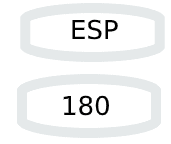Uses
Bempedoic acid is used together with lifestyle changes (diet, weight-loss, exercise) and certain cholesterol-lowering medications (HMG-CoA reductase inhibitors [statins]) to further decrease low-density lipoprotein (LDL) cholesterol (‘bad cholesterol’) in the blood of adults with familial heterozygous hypercholesterolemia (HeFH; an inherited condition in which cholesterol cannot be removed from the body normally) or heart disease. Bempedoic acid is in a class of medications called adenosine triphosphate-citrate lyase (ACL) inhibitors. It works by blocking the production of cholesterol in the liver.
Side Effects Of Bempedoic Acid
Bempedoic acid may cause side effects. Tell your doctor if any of these symptoms are severe or do not go away:
- muscle spasms
- back pain
- pain in hands or feet
Some side effects can be serious. If you experience any of these symptoms, stop taking bempedoic acid and call your doctor immediately or get emergency medical treatment:
- severe pain, redness, warmth, tenderness, or swelling of the joints, especially in the big toe area
- hearing or feeling a snap or pop in a tendon area; bruising after an injury to a tendon area, or inability to move to or bear weight on the affected tendon area
Bempedoic acid may cause other side effects. Call your doctor if you have any unusual problems while taking this medication.
Warnings & Precautions
Before taking bempedoic acid:
- tell your doctor and pharmacist if you are allergic to bempedoic acid, any other medications, or any of the ingredients in bempedoic acid tablets. Ask your pharmacist for a list of the ingredients.
- tell your doctor and pharmacist what other prescription and nonprescription medications, vitamins, nutritional supplements, and herbal products you are taking or plan to take. Be sure to mention any of the following: fluoroquinolone antibiotics including ciprofloxacin (Cipro), gatifloxacin (Zymar, Zymaxid), levofloxacin (Levaquin), or ofloxacin; pravastatin (Pravachol); simvastatin (Flolipid, in Vytorin); or oral or injectable steroids such as dexamethasone, methylprednisolone (Medrol), or prednisone (Rayos). Your doctor may need to change the doses of your medications or monitor you carefully for side effects.
- tell your doctor if you have or have ever had gout, tendon (a fibrous tissue that connects a bone to a muscle) problems, or kidney or liver disease.
- tell your doctor if you are pregnant, plan to become pregnant, or are breast-feeding. If you become pregnant while taking bempedoic acid, call your doctor.
Dosage Of Bempedoic Acid
Keep all appointments with your doctor and the laboratory. Your doctor will order certain lab tests to check your body’s response to bempedoic acid.
Do not let anyone else take your medication. Ask your pharmacist any questions you have about refilling your prescription.
It is important for you to keep a written list of all of the prescription and nonprescription (over-the-counter) medicines you are taking, as well as any products such as vitamins, minerals, or other dietary supplements. You should bring this list with you each time you visit a doctor or if you are admitted to a hospital. It is also important information to carry with you in case of emergencies.
Other
Keep all appointments with your doctor and the laboratory. Your doctor may order certain lab tests to check your body’s response to bempedoic acid.
Do not let anyone else take your medication. Bempedoic acid is a controlled substance. Prescriptions may be refilled only a limited number of times; ask your pharmacist if you have any questions.
It is important for you to keep a written list of all of the prescription and nonprescription (over-the-counter) medicines you are taking, as well as any products such as vitamins, minerals, or other dietary supplements. You should bring this list with you each time you visit a doctor or if you are admitted to a hospital. It is also important information to carry with you in case of emergencies.
Source
All information has been provided courtesy of MedLinePlus from the National Library of Medicine and from the FDA.



